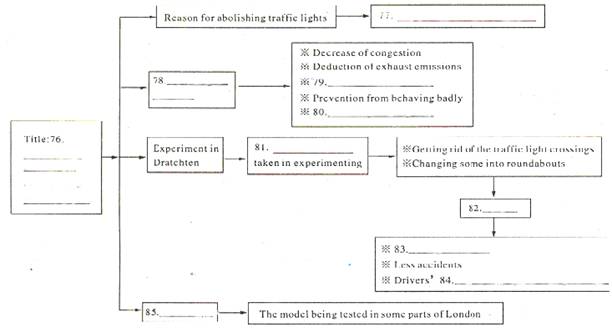题目内容
There are two dangers to be guarded against in old age. One of these is undue absorption in the past. It does not do to live in memories, in regrets for the good old days, or in sadness about friends who are dead. One’s thoughts must be directed to the future and to things about which there is something to be done.
It is unwise to be too attached to the youth in the hope of sucking vigor from its vitality. When your children are grown up they want to live their own lives, and if you continue to be as interested in them as you were when they were young, you are likely to become a burden to them, unless they are cold to you.
I think that a successful old age is easiest for those who have strong impersonal interests involving appropriate activities. It is in this sphere that long experience is really fruitful, and it is in this sphere that the wisdom born of experience can be exercised without being oppressive. It is no use telling grown-up children not to make mistakes, both because they will not believe you, and because mistakes are an essential part of education. But if you are one of those who are incapable of impersonal interests, you may find that your life will be empty unless you concern yourself with you children and grandchildren. In that case you must realize that while you can still render them material services, such as making them an allowance or knitting them jumpers, you must not expect that they will enjoy your company.
Some old people are afraid of death. But in fact the best way is to make your interests gradually wider and ore impersonal. An individual human existence should be like a river-small at fist, rushing passionately past rocks and over waterfalls. Gradually the river grows wider and the banks move back and in the end they become mixed in the sea without any visible break.
The old man who can see life in this way will not suffer from the fear of growing old and death.
1.The author suggests that old people should_______.
A. develop impersonal interests with proper activities.
B. tell their children not to make mistakes
C. concern themselves with their children
D. not give their children an allowance
2.The underlined word “render” in Paragraph 3 is close to the meaning of “_____”.
A. return B. reward C. offer D. demand
3.The author compares an individual human existence to a river because _____.
A. Life is like a river, first small, and then it becomes wide
B. life is like a river finally flowing into the sea
C. old age and death are both natural just like a river
D. old people will be mixed in the crowd like a river mixed in the sea
4.What’s the best title of this passage?
A. Setting Sun Is Beautiful B. Growing Old Successfully
C. Why Fear Getting Old D. Caring for Olds More
1.A
2.C
3.C
4.B
【解析】
试题分析:文章讲的是老人不应该沉浸在过去的日子里,不能活在记忆里,不能总是为过去的事情后悔,为逝去的老朋友悲伤。而应该活在现在。另外老人不要太依赖年轻人,要建立自己的兴趣爱好,建立良好的死亡观。
1.细节理解题。第三段第一句话 I think that a successful old age is easiest for those who have strong impersonal interests involving appropriate activities. 我认为一个人能做到对合适的活动很有兴趣,那么,他就极易享有成功的晚年。故选A。
2.语义猜测题。In that case you must realize that while you can still render them material services, such as making them an allowance or knitting them jumpers这样的话,你需.要意识到即使你可以为他们提供一些物质帮助,例如给他们些钱或者替他们织件毛衣,render应该是提供的意思。所以选C。
3.推理判断题。看最后两段,An individual human existence should be like a river-small at fist, rushing passionately past rocks and over waterfalls. Gradually the river grows wider and the banks move back and in the end they become mixed in the sea without any visible break. The old man who can see life in this way will not suffer from the fear of growing old and death.人的存在应当像是河流——最初涓涓细流,欢快的穿过岩石,跨越瀑布。渐渐的,河道变宽,两岸后退,河水也安静下来。最终,没有任何停留的迹象,融入大海。能够这样看待生命的人年老时就不会为死亡而恐惧。从这段话可知,作者想让大家明白,人的存在和河流的流动一样,非常自然。故选C。
4.主旨大意题。从全文内容可知,本文讲的就是老人该怎样调整心态,怎样安度晚年。
考点:考查人生百味类短文阅读。故选B。

